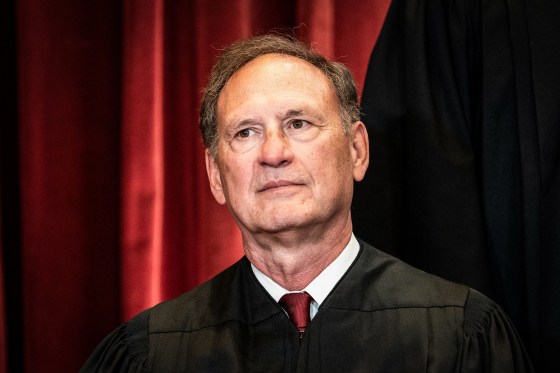Supreme Court Justice Samuel Alito said Thursday recent criticism of the court's decisions in cases involving abortion and evictions unfairly accuses the conservative justices of acting in secret and in haste.
Both decisions — allowing the new Texas abortion law to take effect but blocking the Biden administration's moratorium on evictions — were issued in a short time frame, without oral argument or the usual schedule to file written briefs. They were, instead, the products of what has come to be known as the court's "shadow docket."
Alito said the criticism is based on a misunderstanding of how the court handles emergency appeals.
"The catchy and sinister term 'shadow docket' has been used to portray the court as having been captured by a dangerous cabal that resorts to sneaky and improper methods to get its ways" by issuing decisions in the dead of night, Alito, who was nominated to the court by President George W. Bush, said in remarks at Notre Dame Law School.
"That portrayal feeds unprecedented efforts to intimidate the court or damage it as an independent institution," he said.
Alito said critics misunderstand the court's emergency docket — the cases seeking immediate rulings to block the effects of lower court rulings. The court is often given a deadline of only a few days to act and therefore cannot follow the normal schedule, and it must proceed without the usual exchanges of legal briefs or courtroom argument.
"We do the best we can under the time constraints," he said, comparing the process to what emergency responders do at the scene of an accident.
In the Texas abortion case, he said, the challengers went to the court only 36 hours before the law, known as Senate Bill 8, was to take effect.
"Our decision was criticized by those who think we should have decided it the other way. I have no problem with debate over substantive issues. My complaint concerns all the talk about the shadow docket, as though it's something new or shadowy," he said.
But criticism of the handling of emergency appeals has come from within the court, as well.
The Supreme Court's decision Sept. 1 to allow the Texas abortion law to take effect "illustrates just how far the court's shadow-docket decisions may depart from the usual principles of appellate process," Justice Elena Kagan wrote in a brief dissent.
Kagan said that because the court acted hastily, without guidance from the appeals court and based on only cursory submissions, "the majority's decision is emblematic of too much of this court's shadow docket decision making — which every day becomes more unreasoned, inconsistent, and impossible to defend."
Democrats on the Senate Judiciary Committee condemned the court's increasing reliance on the emergency docket at a hearing Wednesday. Steve Vladeck, a law professor at the University of Texas at Austin, said that in past years the docket dealt mainly with narrow and temporary rulings but that more recent decisions have had direct and permanent effects on state and federal law.

